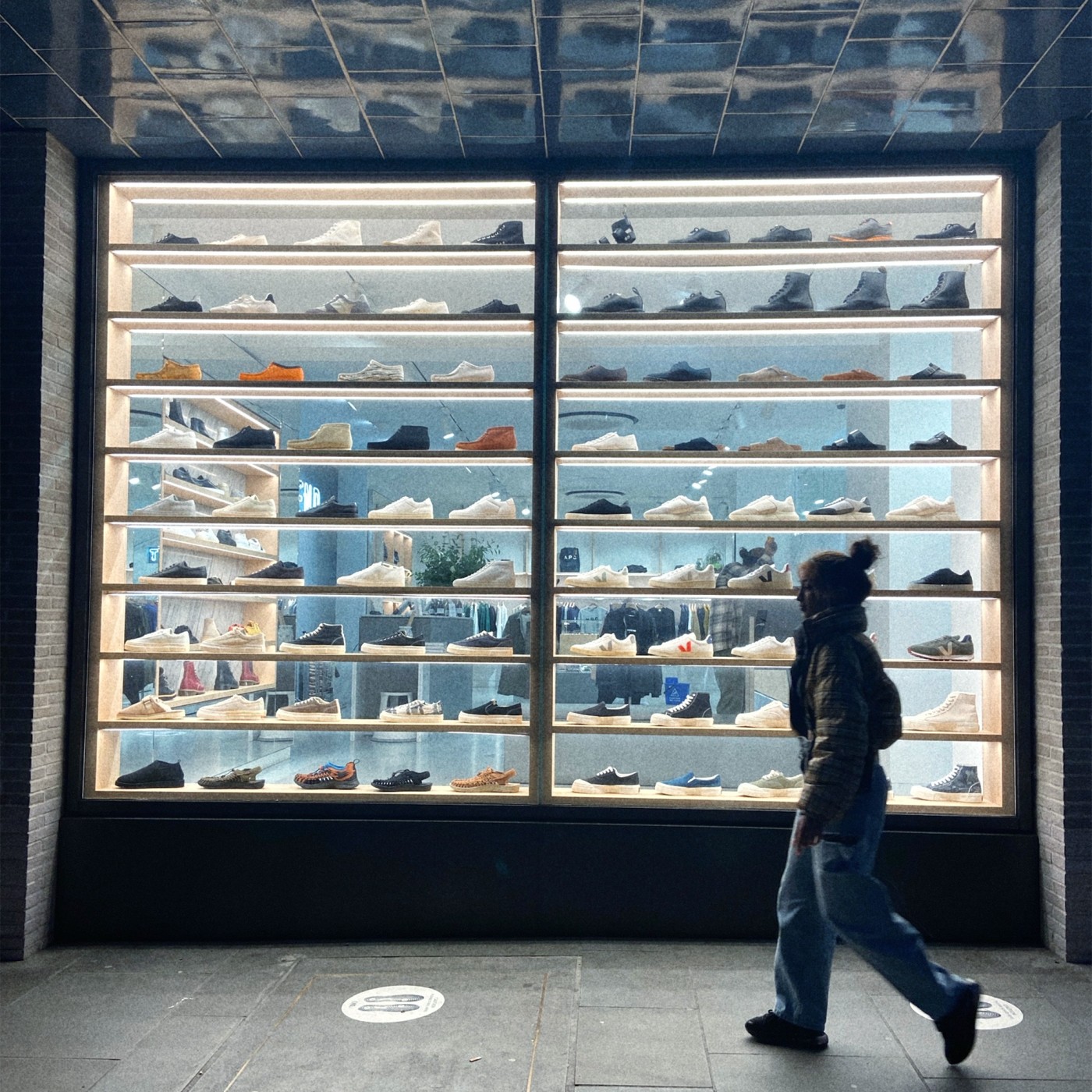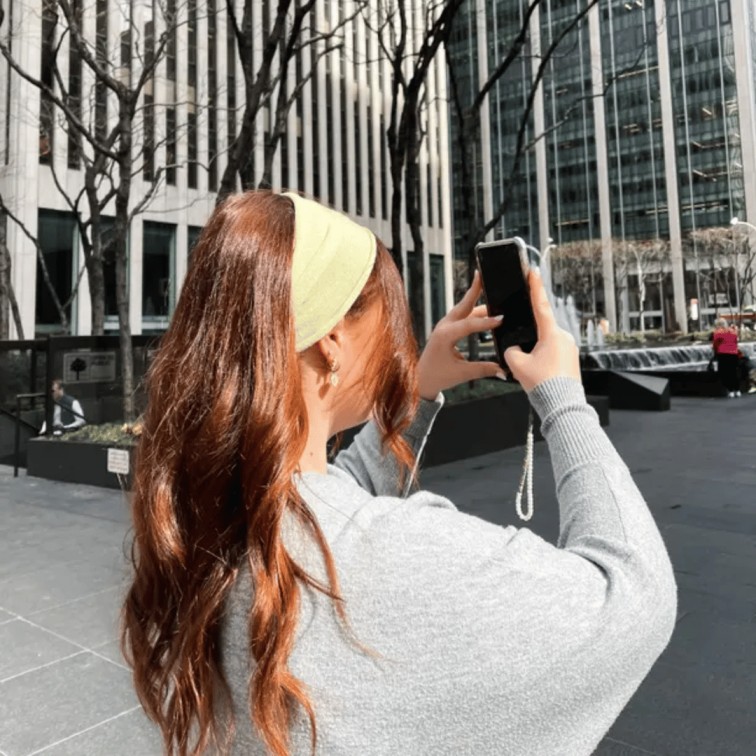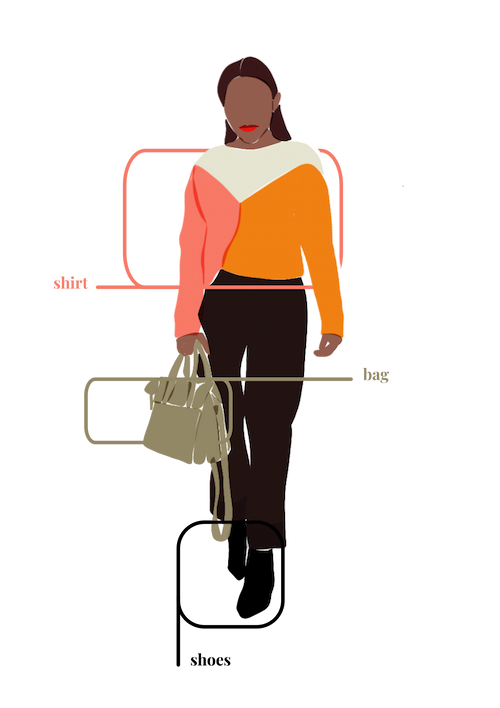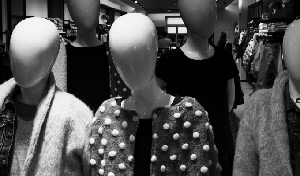- Clothes
- Bags
- Accessories
-
Inspiration
- Shoes
Psychology of Fast Fashion: Why You Can(’t) Stop Buying It

We now buy 60% more clothes than in the year 2000 but wear them less than 7 times. Then? We order some more, of course.
And despite knowing fast fashion hides sweatshops and is detrimental to the planet, we JUST. CAN’T. STOP. Why?
Let’s look at the psychology of fast fashion to understand what’s keeping you hooked—and why, even though it feels hard, you can overcome it (as told by a former shopaholic turned conscious fashion enthusiast).
What is the psychology behind fast fashion?
In a nutshell, the psychology of fast fashion is that it’s designed to trap you into a vicious cycle of chasing happy chemicals while keeping you unhappy.
The dopamine trap

Shopping triggers instant gratification, our desire for immediate pleasure or rewards. No wonder we even refer to it as “retail therapy” or buy clothes to treat ourselves!
- Shopping releases feel-good brain chemicals – When you buy a new garment or get it delivered, you get a pleasurable dopamine hit
- Even more so with fast fashion clothes – Some MIT researchers proved that our brain’s pleasure centre gets activated more when we buy cheaper clothes!
- That happiness is short-lived, though – The initial dopamine hit feels good, of course. But then your excitement goes away after a day or less. And the buzz you felt when picking up your “new” item? It only lasts four wears, and a third of consumers feel even emptier than they did before their fast fashion purchase
- So, you chase that dopamine rush again – This keeps you trapped in that vicious cycle. And because fast fashion is so cheap, it’s easy to get new clothes (= dopamine hits) weekly or even any other day
Constant temptations, trends, and FOMO
Ads, films, social media…
Sadly, EVERYTHING around you has brainwashed you into seeing clothes as disposable and needing to chase trends (without even questioning it or worrying about the consequences).
- New trends – We went from having two main seasons a year to… 52, with ultra fast fashion stores uploading thousands of new garments every week! So, if you want to keep up with these trends (and you do, because otherwise you’ll get that fear of missing out)? You must keep buying clothes regularly, even if they don’t match your preferences or style
- Tricks – Only popped into that fast fashion store to buy one thing? They probably rearranged it so that you now have to look at eeeeeeverything else again. Online? All those ads, notifications, and time-limited offers will trigger a sense of urgency and yet another dopamine rush
This is all amplified on social media, which has a HUGE impact on the psychology of fast fashion (more on that soon!). And because you can shop directly on some of those platforms? It’s even harder to resist!

Social media
As humans, we must feel like we belong. It’s in our hierarchy of needs.
Unfortunately, when we keep engaging with fast fashion content on social media, we internalise the idea that “to belong, I must buy more.”
- Influencers and fast fashion – Clothing hauls on TikTok and YouTube, never posting the same outfit twice on their Instagram feed, creating content around all the latest “must-haves” in fashion… Of course, you constantly feel the need to buy more!
- Negative impact on your mental health – Consuming this content can make you feel bad about yourself, pushing you to buy new clothes to fill a void, feel worthy, or “belong”. In fact, people who are more active on social media and those who are more self-conscious (and let’s face it: the former amplifies the latter) are more likely to shop fast fashion clothes
Positive reinforcement
Psychologically, when we realise that a behaviour is encouraged by rewards, we want to adopt it or repeat it. What’s this got to do with the psychology of fast fashion, then?
- Social media success – Someone received loads of likes when posting a new fast fashion outfit? An influencer got praised for a brand collaboration? This all reinforces the idea that “buying new clothes = good”
- Real-life circles – Do your friends make plans around shopping? Compliment each other whenever they show up with yet another Shein purchase? It’ll push you to do the same to receive their validation!
Cognitive dissonance
Some people genuinely don’t know about the environmental and social problems with fast fashion. Others do, but they also reeeeeaally want that shiny fast fashion garment.
That’s cognitive dissonance: holding conflicting beliefs or attitudes.
And what happens when you know in your heart that fast fashion is terrible BUT your brain is trapped in that vicious cycle of needing dopamine hits? You’ll go through an internal conflict, convince yourself that supporting fast fashion isn’t that bad, try to justify it, buy that item anyway, and then feel bad about yourself.

The psychology of fast fashion is really about keeping you unhappy but ‘addicted’
Fast fashion is an amazing way to continuously keep on adding new pieces to your wardrobe and update your style. But despite the initial dopamine rush, fast fashion overconsumption is keeping you unhappy and unsatisfied.
But because your brain craves those feel-good chemicals? You can’t stop buying it.
Hopefully, this shows you that you’re not “just being weak.” All these factors behind the psychology of fast fashion have been working against you.
But as a former shopaholic, I promise you: you can put an end to it!
How to use the psychology of fast fashion to break free from it

- To feel more motivated, educate yourself on why fast fashion is bad
- Remove distractions (like shopping apps, brand newsletters, and influencers that make you feel worse about yourself)
- Understand what fast fashion habits are keeping YOU hooked (for example, if it’s “buying new clothes to treat myself”, you could replace that reward with “taking myself out for coffee”)
- Find your own style, and start choosing clothes that feel like you and make you happy whenever you rewear them (NOT impersonal trends!). You could for example try out bold things by renting clothes.
- Create new outfits with the clothes you already own
- Embrace the joy of supporting sustainable brands that align with your beliefs (psst! You can find hundreds of them on Project Cece)
- Invest in fewer but higher-quality and sustainable clothes that were made to last and match your style. You’ll also save money in the long run because their cost per wear will be lower than buying lots of fast fashion clothes regularly but only wearing them a couple of times
The psychology of fast fashion is all about keeping you unhappy and hooked, making you feel like you have to buy more.
You can stop, though. And not only will it become easier after a while: it’ll feel better, too.
Share our story
Related articles
6 Fast Fashion Habits Keeping You Hooked: How to Break Them
You keep promising you'll be more mindful with your clothes but always slip back? It's because you must break these fast fashion habits FIRST! Here's how.
How to Ditch Fast Fashion & Switch to Ethical Clothes: 10 Tips
Ready to take the first step towards a more sustainable wardrobe? Here are some practical tips to ditch fast fashion and discover ethical alternatives.
Problems with Fast Fashion: Cheap Clothes, High Hidden Costs
From child labour to toxic dyes, there’s a high hidden cost behind cheap labels. Check out the problems with fast fashion and discover a sustainable solution.
Project Cece is a platform that collects ethical fashion from vetted brands and shops in one place. Browse ethical fashion for women and men and find items that fit your style, budget and values!

_large.png)


